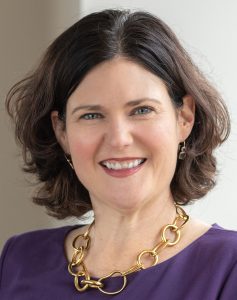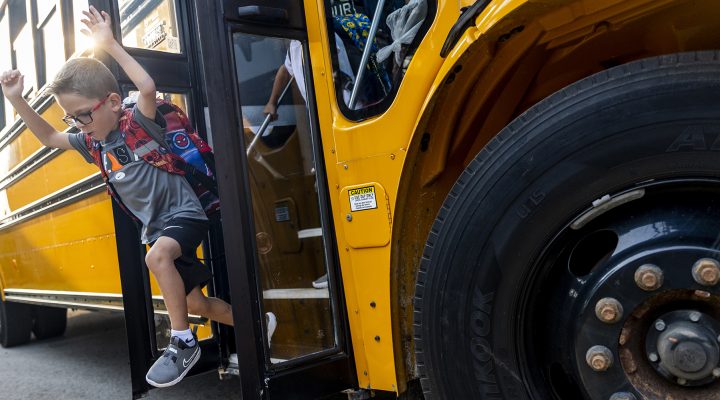Texas school districts should reject a new state law that permits hiring government-approved chaplains to counsel public school children, more than 100 chaplains say in an Aug. 22 letter to school board members statewide.
The chaplains warn the policy created with the passage of Senate Bill 763, which goes into effect Sept. 1, includes no minimum educational or training standards for school chaplains hired to work in mental health roles and does nothing to prevent them from proselytizing students of different or no religious affiliation. The legislation also permits volunteer chaplains to work with students.
“We urge you to support religious freedom and parental rights by rejecting this harmful program to have government-approved chaplains in our public schools,” the ministers say in the letter organized by Baptist Joint Committee for Religious Freedom, the Interfaith Alliance and Texas Impact.
The letter also objects to paying school system chaplains from safety and security funds usually dedicated to mental and behavioral health, suicide prevention and restorative discipline and justice initiatives.
“We believe that a strong public school system is one in which the limited funding for safety and security of students is used to hire the most skilled professionals for those roles,” the chaplains state. “We believe that families, not the government, are entrusted with their children’s spiritual development.”

Amanda Tyler
The bill has come at a time when religious extremists seek to tear down the constitutional barrier between church and state generally and in public schools specifically, BJC said in its public release of the letter.
“A pair of Supreme Court decisions handed down last year, Carson v. Makin and Kennedy v. Bremerton, have opened the floodgates for funneling public money toward religious schools and for coercive school prayer, respectively,” BJC said. “Meanwhile, Oklahoma and Guam recently approved the establishment of the nation’s first religious public charter schools, while lawmakers and school boards nationwide have aimed to push Bible studies onto public schools.”
And Texas, which last year required all schools to post “In God We Trust” signs, tried unsuccessfully this year to mandate classroom displays of the Ten Commandments.
Allowing schools to hire chaplains is a further assault on religious liberty, BJC Executive Director Amanda Tyler said. “Public schools are not the place for religious instruction — that is best left to houses of worship, religious institutions and families.”
“School districts should reject this misguided effort to inject more religion and division in our schools.”
Tyler said the issue is one very personal to her. “As both the mom of a third grader in a Dallas public school and a Baptist leader committed to religious freedom, I’m deeply concerned about growing Christian nationalism in Texas. Christian nationalism conflates religious and political authority, and our public schools should not be endorsing religion; they should continue to leave that up to the students and their families. School districts should reject this misguided effort to inject more religion and division in our schools.”
Public school classrooms are not the place for proselytizing, added Franz Schemmel, Texas Impact board president and pastor of Messiah Lutheran Church in Weatherford, Texas.
“Texas Impact’s member faith traditions recognize the unique value of chaplains in some of life’s most challenging situations, and that’s why they insist on rigorous training and oversight of chaplains under their commission. Public schools are not an appropriate setting for sectarian chaplains of any description, let alone the freelance, unsupervised chaplains this legislation envisions.”

Paul Raushenbush
Interfaith America President Paul Brandeis Raushenbush praised the signatories of the letter for publicly supporting the physical, emotional and spiritual well-being of students.
“Chaplains across Texas have taken a powerful moral stand against the legislature’s effort to foist religion onto public schools and undermine student health and safety,” he said. “As a Baptist minister, former chaplain and as a parent, I reject the notion that religious instruction has any place in public schools meant to serve students of all backgrounds and identities. I commend these chaplains for standing up for church-state separation and demanding that every student can access mental health and behavioral support from trained professionals, free from the risk of religious coercion.”
In their letter, the chaplains also provide school board members an overview of the responsibilities of ministers called to chaplaincy, and specifically how they avoid efforts to convert those of different or no religious affiliation.
“Our extensive training empowers us to follow the lead of the individuals seeking our spiritual care without imposing our own faith tradition upon them,” the chaplains say. “For example, a Jewish military chaplain will advocate that a Muslim service member be able to pray the five daily prayers while deployed. A Christian hospital chaplain will help an atheist patient explain to her family her peace of mind that there is no afterlife.”
“Chaplains serving in public schools would also amount to spiritual malpractice by the chaplains.”
That approach strongly contrasts the potential for evangelism created by inviting untrained and unmonitored chaplains into public schools, the letter contends.
“As trained chaplains, we strongly caution against the government assertion of authority for the spiritual development and formation of our public school children. We would never provide spiritual care to someone without their consent. And when children are involved, parental consent is necessary. Not only are chaplains serving in public schools likely to bring about conflict with the religious beliefs of parents, but chaplains serving in public schools would also amount to spiritual malpractice by the chaplains.”
The letter also highlights the irony that trained, professional chaplains would be professionally and ethically unable to perform the duties called for in Senate Bill 763.
“We cooperate with mental health counselors — we do not compete with them. Further, professions which help children with sensitive matters, such as therapists and police investigators, typically require special training on how to interview and treat juveniles. Few chaplains have this expertise.”
The chaplains counter arguments used by Texas House members that schools are no less appropriate for chaplains than are hospitals, prisons and military units.
“Public school children simply do not face the barriers to religious exercise that service members, prisoners and patients face,” the letter states. “Parents or guardians must have the right to choose the religious leaders who will influence their children’s spiritual journey. Public schools should not interfere or alter parental decisions in the realm of religious exercise or spiritual care.”
At least 14 chaplains endorsed by the Cooperative Baptist Fellowship signed the letter, as did numerous Catholic, Episcopal, Lutheran, Methodist, Presbyterian and Unitarian Universalist ministers. The document was also signed by Buddhist and Jewish chaplains.
Related articles:
Four groups warn Texas schools against new chaplaincy scheme
Ten Commandments bill dies in Texas Legislature


